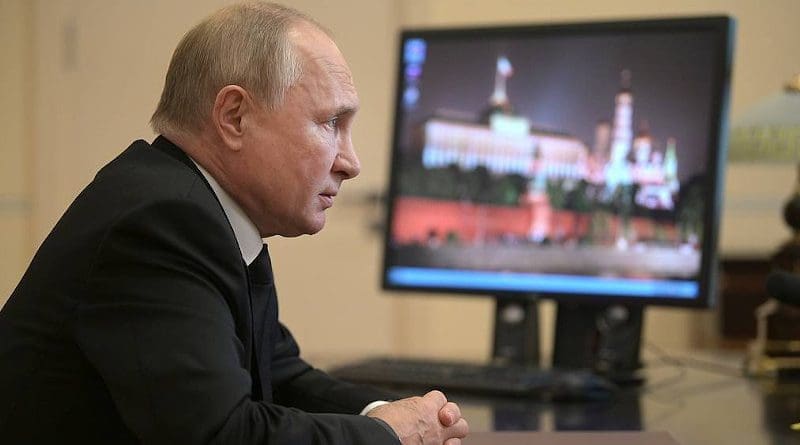Russia’s Political Parties To Join Hands In Nation Building – OpEd
Just a few days after the parliamentary elections, Russian President Vladimir Putin interacted with all the political party leaders and passionately called for collective efforts in tackling the significant development issues facing the country.
While addressing them, he first reiterated that the elections to the State Duma (the lower chamber of legislators) was held in strict compliance and within the law, and further pointed out that the composition of the parliament had been determined by the people “who exercised their constitutional sovereign right.”
Why the meeting matters: It was called to remind the leaders of the traditional opposition parties to join in nation building instead of engaging in destructive criticisms. With the existing stability, it is necessary to address the development setbacks, raise living standards and uplift the welfare of the population. Russia’s population, already declining, is approximately 145 million.
Putin has urged, during the meeting, to bring poverty to a minimum in the country and lift “a considerable amount of people” out of poverty.
“We all have numerous common challenges and common tasks. It is necessary to bring the poverty level in the country down to a minimum and to help a considerable amount of people out of it. It is necessary to improve the conditions of life, development and education, and simply the nutrition of children in low-income families, to raise for everyone the level and accessibility of quality modern education, and healthcare,” Putin said in a video conference with party leaders.
As the president noted, it is “extremely difficult, but an absolute priority.”
“It is necessary, of course, to boost the economic growth. Those are not simply general, but uniting us goals. I am convinced that the experienced traditional parliamentary parties and the new political forces, which will be represented in State Duma, will be aware of their responsibility to Russia and will do their utmost to justify the confidence – high confidence – shown by voters to them,” the president added.
A huge income gap between the rich and poor in Russia is a problem, Putin said, stressing rising problem of enormous economic inequality in the country.
According to the Central Election Committee (CEC), more than a half of the country’s voters cast their ballots. For the first time since the 1999 election, there will be more than four political factions in the State Duma. The United Russia party has demonstrated its leadership during the elections.
“It also demonstrates the democratic nature of election rules and procedures, the development of democracy in our country, and that different political forces have a real chance to make themselves heard. I would like to thank the people of Russia for coming to the polling stations or for voting at home, and remotely. It also demonstrates the democratic nature of election rules and procedures, the development of democracy in our country, and that different political forces have a real chance to make themselves heard,” Putin said.
Russia held elections to the eighth State Duma on September 17-19. According to the CEC, United Russia gained 324 seats in parliament, the CPRF got 57, the A Just Russia – For Truth party received 27, the Liberal Democratic Party (LDPR) secured 21 and New People won 13 seats. In addition, Rodina, the Party of Growth and the Civic Platform will send one MP each. The eighth State Duma will also include five independent lawmakers.
The meeting was attended by United Russia Chairman Dmitry Medvedev, CPRF party leader Gennady Zyuganov, LDPR party leader Vladimir Zhirinovsky, A Just Russia – Patriots – For Truth party leader Sergei Mironov, New People party leader Alexei Nechayev, and several party members with them, as well as Vyacheslav Volodin, the former State Duma Speaker of the United Russia party.

